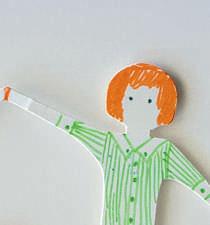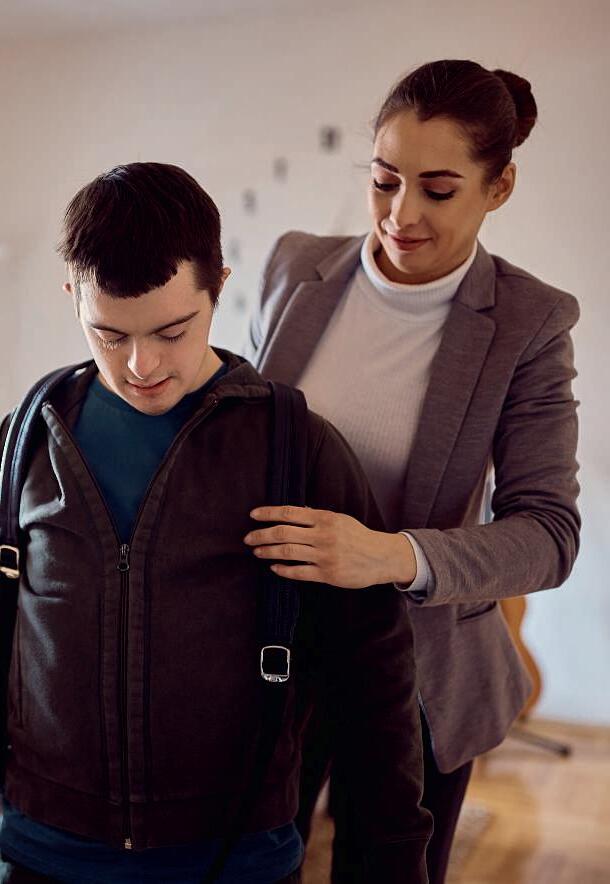
3 minute read
Support for care leavers in FE and HE
When accessing further or higher education, what supportis available for care leavers, and those still in care? Jade Ward looksatsome of the statistics, and outlines some of the options available for young people and those who supportthem.

Atany onetime, there are around70,000 children in care in England. These childrenlivein several accommodation settings, includingfoster care, residential children’s homes or kinshipcarewithfamily or friends who arenot theirparents. Youngpeople enterthe care system duetoa rangeof issues,suchasparents who arenot able to care for theirchildthrough disability, unaccompanied asylum-seekingyoung people andiftherewas asignificant risk of harmidentifiedwithin thehome.


Many youngpeople whoenter thecare system will go through multiple placement moves during their timeincare and, for approximately30per cent,thiswill mean amove to adifferent localauthority
Thesemoves can often be adifficult and traumatictimefor young people. Along with achange in placement,they may also see achange of social worker, an impactonrelationships with family members, friendships and networks of support,and neweducation provisions. Thiscan affectthe support in placefor young people, leading to delays in identifyingtheir needs, including recognising neurodiversity and special educational needs
We know that children in care and careleavers share thesame aspirations for their futuresastheir peers, including having goodeducationand employment opportunities. However,a recent study completed by researchers at theUniversity CollegeLondon GreatOrmondStreet Institute of Child Health(GOSICH)found thatfourout of five children whoenterthe caresysteminEngland equire supportfor SEN between the agesoffiveand 16, but only aquarter of these young people had an Education,Healthand Care Plan (EHCP) in place(http://bit.ly/3YdeiPz*)
For many,having alabelofspecial educationalneeds mayseem like abarrier to pursuing education,but there are some support optionsinplacetoensureyoung people can achieve.
WHATSORT OF SUPPORTISAVAILABLE?
Thereisa rangeofsupportavailable forchildren andyoung people in care to helpensuretheyreceivethe best education possible; this supportisongoinguntil theage of 25 andcoverscompulsory education and further andhigher education.
PERSONAL EDUCATION PLANS (PEP)

Children whocomeintocare under the ageof16should have a personal educationplandeveloped with them as soon as they become looked after.Thisplanshould be updated when ayoung person moves schools andshould be shared with theyoung person, teachers, andthe social worker
Designated Teachers
Each school shouldhavea designated member of stafffor children in care. Thedesignatedteacheris there to supportyoung people and feed into the young person’s PEP,ensuringrecommendations are acted upon in the school.
VIRTUAL SCHOOL HEAD (VSH)
Therole of the virtual school head is to promotethe educational achievementofall children in careunder thelocal authority, includingthose placed outside of thelocal area.The VSH ensures allprofessionals involved understandtheir rolewith maintaining thePEP,and that the needs of the youngperson arebeing met.
PERSONAL EDUCATION ALLOWANCE (PEA)
Each child in thecare system willhave asum of moneyallocatedtobeused to support their education. Thesupport for theyoung person will be decided withinthe PEP meetingsand theyoung person should have asay in this.
*Ref: Jay MA, Gilbert R Special educational needs, social care and health Archives ofDisease in Childhood2021;106:83-85.
THERE ARE AROUND
70,000 CHILDREN IN CARE IN ENGLAND
Youngpeoplewho wish to go to universitywillbe supportedvia thelocal leaving care teamand will have access to thehigher education bursary
Care Leavers
Youcan getintouch with Propel viaour helpline (0800023 2033) or by emailing propel@becomecharity.org.uk
Once ayoung person is starting to prepare for independence, usually around 16 years old, their care plan will become apathway plan and their supportwill move to the leaving care team. During this transition, the supportfor ayoung person’seducation may change. Young people will continue to have PEPs until the age of 18 and the virtual school will provide advice and supportaround the 16-19 bursaryfundfor further education.
Once ayoung person reaches 18, they will have access to anamed professional in the leaving care team who will supportoneducation, employment and training. In some local authorities, this will be the young person’spersonal adviser or leaving care worker

Young people who wish to go to universitywill be supported via the local leaving care team and will have access to the higher education bursary. They will also be supportedthroughout the university, with most HE settings having a financial package of supportfor care-experienced young people.
Amulti-agency approach is necessaryfor ensuring young people in care are fully supported. Each professional has aresponsibilityinensuring young people succeed; as highlighted above, when one of the professionals involved in a young person’seducation changes, it can impact on supportbeing implemented at the right time and can lead to young people not achieving to their best abilities.
If ayoung person is not getting the right support, professionals can look for an advocate to provide advice and guidance around any challenge with services, helping to ensure that the necessarysupportisinplace.
FOUR OUT OF FIVE CHILDREN WHO ENTER THE CARE SYSTEM IN ENGLAND REQUIRE SUPPORTFOR SEN BETWEEN THE AGES OF FIVE AND 16
25% OF THESE YOUNGPEOPLE HAD AN EDUCATION HEALTH AND CARE PLAN (EHCP) IN PLACE
Become Charity has acare advice line (0800 023 2033) for professionals and young people seeking support. OpenMondayto Friday between 10am and5pm, it is afree servicefor youngpeople and professionals. StaffatBecome canprovideadvice andsupport on several issues,including:
Moneyworries
Health andwellbeing
Rights andentitlements in/and leaving care
Housing issues
Contact with siblings and family members
Finding national and localservicestoassist.
Becomealsooffersdedicated supporttoyoung people whowishto access further and highereducation.The adviceand supportofficer for further andhighereducation providesone-to-onesupportfor young people andcan help withall applications, including DSA, Student Finance andUCAS, as well as ensuring theinstitution is made awareof anyneeds theyoung person mayhaveprior to joining The Propelwebsite (https://propel.org.uk/UK/)provides information on the supportavailable from FE and HE institutions,aswellasthe contact information forthe designated care leaver contact
Bio
Jade Ward
Jade is the senior advice and support officer for Further and Higher Education at Become Charity,acharity for children in care and young care leavers. Jade grew up in the care system and was diagnosed with dyslexia and dyspraxia at age 23 whilst completing her undergraduate degree, and later went on to complete her Master’s at age30.












